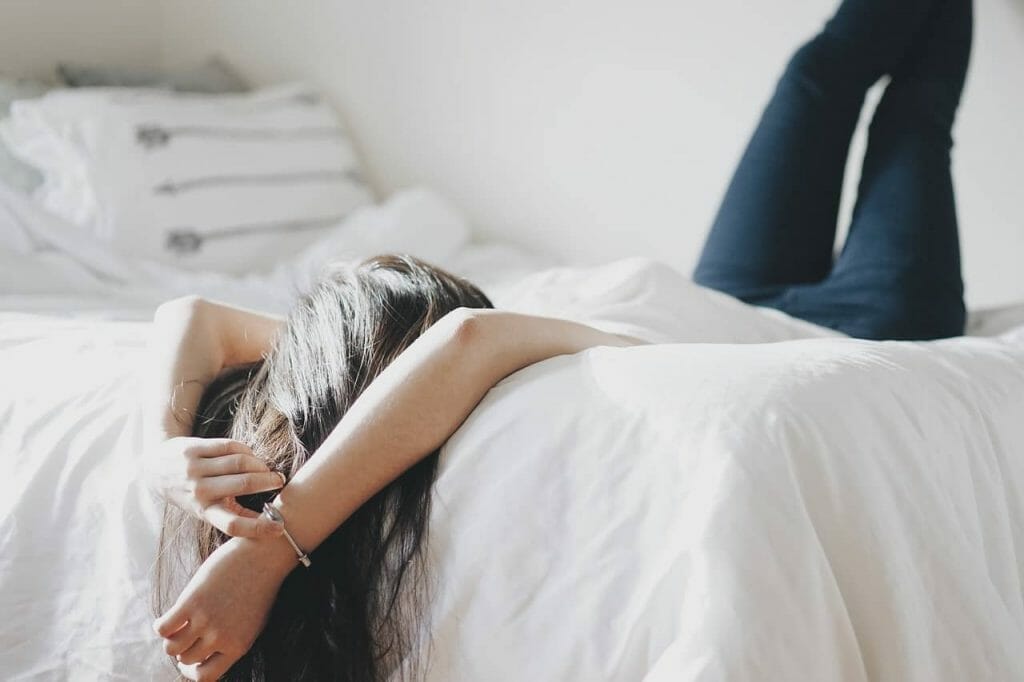The term insomnia is used for disturbances of normal sleep-wake rhythm and the time and depth of nightly rest. People who complain about insomnia usually have problems with falling asleep, or difficulty in staying asleep, waking up too early, or shallow sleep that does not give proper rest.
Table of contents
Insomnia – symptoms and effects
The body has its own biological rhythm, and the alternation of sleep and wakefulness phases is an indispensable condition of its proper functioning. Nowadays this rhythm is often disturbed, resulting in sleep disorders, formerly affecting mainly the elderly, nowadays more and more often occurring in young people.
While temporary insomnia is not significant for health, nor is it particularly troublesome, because subsequent well slept nights quickly eliminate the unpleasant symptoms, lasting problems with sleep cause worse mood and significantly interfere with daily functioning.
A permanently sleep-deprived person is characterized by poorer intellectual performance, longer reaction time, worse memory and concentration skills, lower mood and motivation, lower level of creative thinking and decision-making abilities. There are also headaches, lower physical fitness, hypersensitivity to sounds and light.
Insomnia promotes additional stress, lowered mood and depression, and this in turn may aggravate insomnia, so a vicious circle is formed. Doctors also emphasize that chronic problems with sleep lead to weakening of the immune system, which may become the cause of other diseases.
Insomnia – the causes
Insomnia, or insomnia, is any disorder resulting from difficulties in falling asleep, continuing to sleep, prematurely waking up or waking up in the middle of the night, superficial sleep, not giving full recovery. There are various classifications of types of insomnia taking into account their substrate, including organic and inorganic, primary and secondary.
With regard to the duration, insomnias are in turn divided into casual, i.e. lasting several days and short-lived (up to a month), usually resulting from a reaction to stress, and chronic, lasting over a month, usually caused by mental disorders or chronic diseases.
To sum up, causes of insomnia may result from temporary external circumstances, such as noise, unfavourable conditions in the room intended for sleeping, change of time zone. Other sources are psychogenic factors – stressful situations, emotional agitation, life problems or conflicts. The cause of insomnia are sometimes psychotic states, depression, delusions, fears and neurotic, associated with disorders of the nervous system. Finally, the inability to fall asleep or sleep of poor quality may be the result of too much caffeine, alcohol intoxication or medication.
Insomnia – treatment
When it comes to treating primary insomnia, i.e. occurring spontaneously without any accompanying diseases, the basic tool is psychological therapy, sometimes supported by medications. Pharmacological treatment includes sleeping pills, sedatives, antidepressants, antipsychotics. There is also a group of medications available without a prescription, for example: melatonin, lupulin obtained from hops, valerian, lemon balm and various preparations containing mixture of adequate plant substances (e.g. Melatolin Plus).
Many people complaining of insomnia reach for various pills for sleep, primarily melatonin. It is a naturally occurring substance in the body, a specific regulator of the biological clock, indicating the time of night rest. Secreted after darkness falls, it makes us sleepy, and its deficiency may contribute to problems with falling asleep and properly relaxing sleep.
Natural ways for insomnia
Regardless of whether we are affected by insomnia, or so far we have avoided this kind of problem, it is necessary to take care of proper sleep hygiene prophylactically. First of all, you need to observe regular hours of night rest and avoid naps in the middle of the day. The bedroom should be well ventilated, and if possible the window should be opened all night. The temperature in the room must not be too high, because you sleep better in a cool place.
A few hours before going to bed, you should avoid coffee, alcohol, cigarettes, heavy meals and strong emotional stimuli, for example in the form of a suspenseful film, television programme or book. However, a glass of warm milk, chamomile infusion or a bath in hop cones can have a calming effect.

